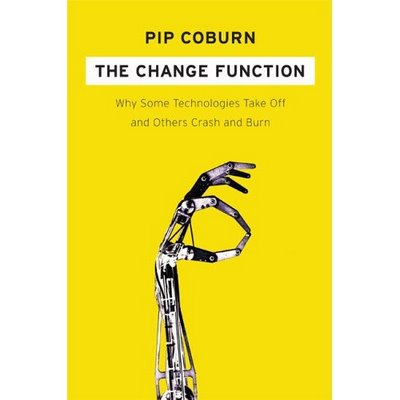
As a PR person, it is not enough only be a good paid-shill, but to understand something about your clients. Are they a winner or a flamer?
If they are a flamer, you want your cash up front and start contingency planning for how you replace them with another piece of business.
If they are a winner, then you can be more flexible and possibly take a bath if they are going to be a flagship brand on your client list.
What is the compelling reason to purchase their product or service.
Rule one: Clients are generally too close to their products, consumers will work out how they become relevant to their own lives or not
Rule two: The greatest lie after 'I love you' and 'I can guarantee you coverage in the Financial Times' is 'Our product is unique'. If the problem can be solved another way, it means that the product is not unique because the customer has a substitute choice. Believe: flickr was not unique, it was an innovative way at looking at the same problem. The iPod was not unique, Compaq made the first hard drive-based MP3 player back in the late 90s and the Mac wasn't unique because it got the queues from Doug Engelbart and Xerox PARC.
The Change Function by Pip Coburn makes an interesting read as it shows by example why some technologies take off, while others flame out.
makes an interesting read as it shows by example why some technologies take off, while others flame out.
What's the crisis the product or services solves? People will generally only adopt the new, new thing if there is a compelling reason for them.
Is the crisis one for real-world people, or just for rich people (who fly business class three days in every week and think that having a social life is messaging fellow college alumni on their Blackberry once every six weeks)?
How high is the total perceived pain of adoption?
Is your client user-centred: do they use language that shows they look at things from the users point of view?
Do they have an iterative development cycle? (Do they roll out improvements on a regular basis, based on user feedback and their technological roadmap rather than blockbuster updates.)
Pip Coburn elegantly codifies common sense; its the stuff you know instinctively, like the smartphone that you only use voice and texting on and yet still listen to music on your iPod, or the latest cool web 2.0 service that you registered for but then never seem to go back to.
If they are a flamer, you want your cash up front and start contingency planning for how you replace them with another piece of business.
If they are a winner, then you can be more flexible and possibly take a bath if they are going to be a flagship brand on your client list.
What is the compelling reason to purchase their product or service.
Rule one: Clients are generally too close to their products, consumers will work out how they become relevant to their own lives or not
Rule two: The greatest lie after 'I love you' and 'I can guarantee you coverage in the Financial Times' is 'Our product is unique'. If the problem can be solved another way, it means that the product is not unique because the customer has a substitute choice. Believe: flickr was not unique, it was an innovative way at looking at the same problem. The iPod was not unique, Compaq made the first hard drive-based MP3 player back in the late 90s and the Mac wasn't unique because it got the queues from Doug Engelbart and Xerox PARC.
The Change Function by Pip Coburn
What's the crisis the product or services solves? People will generally only adopt the new, new thing if there is a compelling reason for them.
Is the crisis one for real-world people, or just for rich people (who fly business class three days in every week and think that having a social life is messaging fellow college alumni on their Blackberry once every six weeks)?
How high is the total perceived pain of adoption?
Is your client user-centred: do they use language that shows they look at things from the users point of view?
Do they have an iterative development cycle? (Do they roll out improvements on a regular basis, based on user feedback and their technological roadmap rather than blockbuster updates.)
Pip Coburn elegantly codifies common sense; its the stuff you know instinctively, like the smartphone that you only use voice and texting on and yet still listen to music on your iPod, or the latest cool web 2.0 service that you registered for but then never seem to go back to.